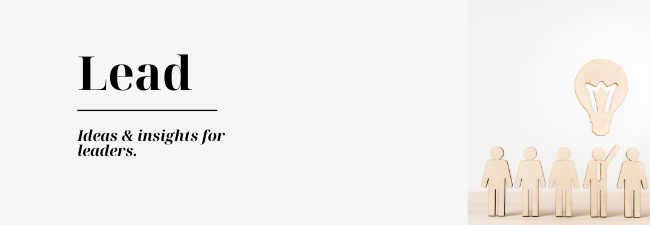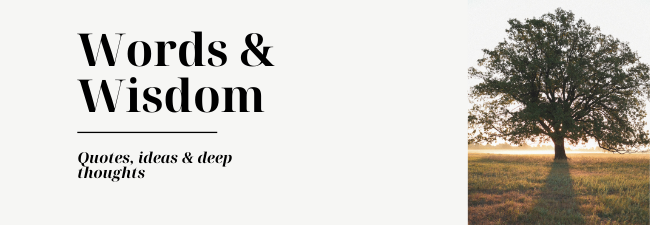“Steph, listen – sometimes you just have to fly it up the flagpole, alright?”
These words came from a vice president at the non-profit I was working for at the time. My direct boss, along with my co-worker and I were sitting in a tiny meeting room, advising this VP as to some communications decisions we’d made and moved forward with.
He was not pleased.
In his mind, we had broken the chain of command and overstepped our bounds by making this decision without his input. While the decision and actions steps really didn’t warrant this level of senior leadership involvement, his tendency toward micro-managing suggested otherwise.
We had clearly crossed the line and he was happy to tell us so.
As I, all of 25, challenged him gently as to why we had made the call and why we didn’t involve him in it, he spoke those words, with a condescending tone that I still remember as if it were yesterday. “Steph, sometimes, you have to fly it up the flagpole, alright?”
I remember leaving that meeting feeling SO incredibly frustrated and undervalued. My co-worker, boss and I (all women it’s worth noting) fumed over lunch about the audacity and lack of trust this man at the top showed us.
For us, it was another reminder that so many organizations believe that leadership is directly correlated with title and hierarchy. It didn’t matter that we had shown initiative, taken ownership and moved something important forward, effectively – what mattered is that we didn’t fly it up the flagpole first.
(Sidebar to this story: It was in that moment that I started to look for another job. And I got one, about six months later – working in Community Investment for a major corporation. This same VP, who was intent on putting me in my place, was only months later, meeting with me to ask for funding. Karma baby).
We don’t have to look far to see that we’re facing a crisis of leadership. The pandemic has highlighted so many cracks in our systems and all the failures of leadership across sectors, communities, government, business and people with platforms.
And it’s a stark reminder that just because people hold leadership titles, does not in fact, guarantee that they actually behave as leaders. There are many people with formal leadership roles who are abysmal leaders, and there are just as many people in entry to mid-stage roles who demonstrate the qualities of the very best leaders.
A leader in every chair
Having worked, studied and volunteered in many realms of leadership roles, there’s one thing I know for sure: everyone, independent of title, salary or formal influence can be a leader. But as long as we hold onto traditional, patriarchal definitions of leadership (power-hungry older white guy at the top of a company in the corner office), we severely limit the impact many of us could be having because we believe we’re not the ones to make the change.
Central to my core message is the underlying idea that leadership is a practice, not a position. I believe that leadership isn’t about a suite of external markers like our titles, but a way of operating in the world and a commitment we make to staying curious, open and of service.
Leadership is available to you right now: it’s in the decisions you make, the stands you take, the support you give and in the way you live.
And we need your leadership, now more than ever. In big ways that challenge the status quo and the systemic and structural problems, and it small, every day ways that add up over time.
I am on a personal mission to help women of varied backgrounds, roles, career paths and lived experience recognize their inherent leadershipness (new word, I made it up) and show up accordingly.
That’s why I built LEAD.Well, and why I’d love to invite you to be part of it today, before the prices go up March 1st.
LEAD.Well is a place to practice, explore, discuss and learn about what being a leader looks likes in 2021 and beyond. We provide the space and the place to grow your leadership on your own time and in your own way, in the company of others on a similar path. There are no hard rules, prescriptive ideas or how-to formulas: just a suite of tools, content, skill-building workshops, and thoughtful conversations to keep you grounded and focused on your own development.
You can learn more and join us for just $150/CAD before March 1st here.
Steph (she/her)
x
💡 FRESH, HAND-PICKED RESOURCES
Curated links from around the web to help you work well, live well and lead well.

I’m only dropping one link here today because it’s important enough to hold this space alone.
I’ve been thinking more and more about how the self-help industry, including coaching, is predicated on the notion that the individual needs help or fixing – that they are broken somehow.
And while I’m all for opportunities for self-reflection and growth, it’s become more and more clear to me over the years, that too often we’re trying to fix the wrong problem. We need to look less at the individual challenges and more at the structural ones that create the circumstances for individual struggle (particularly for underrepresented and marginalized people).
Case in point: the imposter complex.
I’ve had hundreds of conversations with clients over the years about their experience of feeling like an imposter. For some, it’s a little nagging thought that won’t leave them alone and for others, it’s borderline debilitating.
And yet, as Ruchika Tulshyan and Jodi-Ann Burey so poignantly challenge in this HBR article, the imposter complex ideology is inherently problematic.
“The answer to overcoming imposter syndrome is not to fix individuals but to create an environment that fosters a variety of leadership styles and in which diverse racial, ethnic, and gender identities are seen as just as professional as the current model, which Opie describes as usually “Eurocentric, masculine, and heteronormative.
You can read the full article here.

What a hot mess over at Reply All. One the world’s most popular podcasts found itself facing a racial and toxic workplace reckoning long overdue, as a result, ironically, of reporting they had recently released on the similar reckoning over at Bon Appetit. PJ Vogt and Sruthi Pinnamaneni have since stepped down, and Alex Goldman released this message today. TBH, I wonder if that was the easy choice, vs having PJ and Sruthi stay publicly accountable by using the Reply All platform to take responsibility out loud. I may be wrong here – perhaps more damage would be done if they had. Either way, their actions are inexcusable and so disappointing – and another example of an abuse of leadership.
In the category of “didn’t see that coming,” Calgary food blogger and cookbook author Julie Van Rosendaal has been dubbed the “Erin Brockovich of Canadian Butter” by the NYT. In a moment of curiosity about why our butter has been so rubbery and hard to spread, Julie went down a research rabbit hole to figure it out. She’s since been featured on BBC, in Australia, on the Times today and in Jimmy Fallon’s monologue. Couldn’t happen to a nicer person and such a perfect example of where curiosity can take us. #buttergate

“We learn who we are in practice, not in theory.”
~Herminia Ibarra, professor of organizational behavior at London Business School
💥THE WEEK IN A GIF
Everyday leadership looks like all of us.



